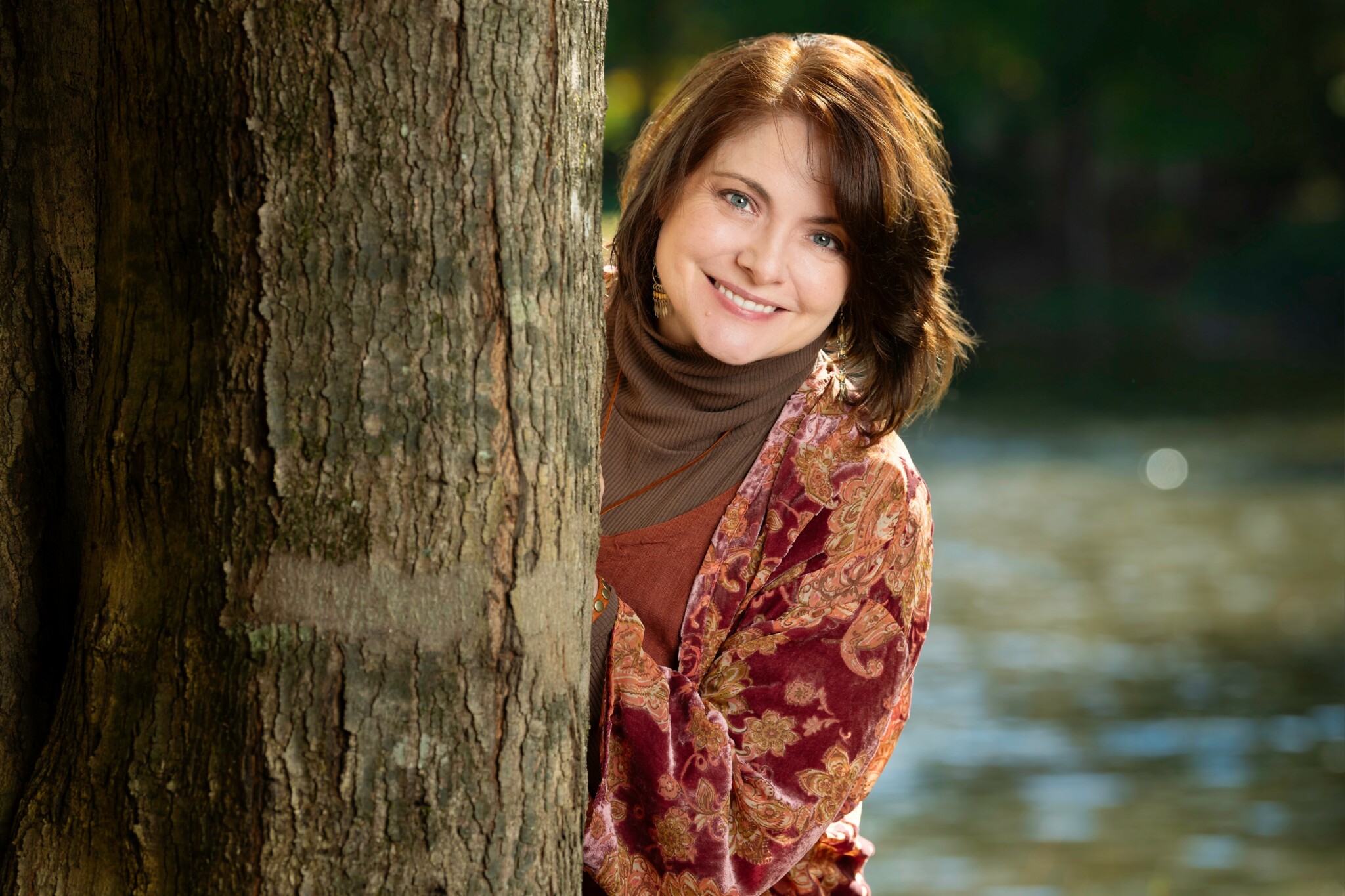Alright – so today we’ve got the honor of introducing you to Lesley Donne. We think you’ll enjoy our conversation, we’ve shared it below.
Alright, Lesley thanks for taking the time to share your stories and insights with us today. Was there a moment in your career that meaningfully altered your trajectory? If so, we’d love to hear the backstory.
Many years ago, when I worked as a firefighter in Carroll County, Georgia, our department faced a tragic event that every first responder hopes never to encounter. A commercial passenger plane crashed in a field near a small local airport. More than 200 passengers and crew were on board when the plane went down. This incident was a mass trauma that we often trained for but had never experienced before, and thankfully, we have not faced anything like it since. The number of casualties, the extent of injuries and burns, and the loss of life and property were incredibly difficult to witness, even for those of us trained to handle emergencies daily.
In the months that followed the crash, many members of the department struggled to cope with the memories of the trauma. While our department had an assistance plan in place, firefighters are notoriously poor at seeking help for themselves, being so accustomed to helping others. As a result, the department psychologist often found an empty waiting room, as firefighters tried to manage their feelings on their own.
Our operations chief decided to take a new approach. He brought in a select team of firefighters and paired them with the psychologist to form a peer counseling team. This was a brilliant move.
Firefighters are used to blowing off steam and sharing stories with their colleagues, so this setup allowed them to open up about the plane crash and work through many of the disturbing emotions it brought up. I was fortunate to be one of the firefighters on the peer counseling team, and this experience forever changed my perspective on health and wellness. It set me on a personal path toward a holistic approach to overall health—encompassing mind, body, and spirit—that I still practice today with my coaching clients.
I learned two very important lessons from this peer counseling experience – firstly that our emotions impact our physical health and must be considered in any kind of approach to long-term wellness, and secondly that talking to someone who is a peer – who has been through a similar shared experience – is far easier when accessing our most trying experiences.
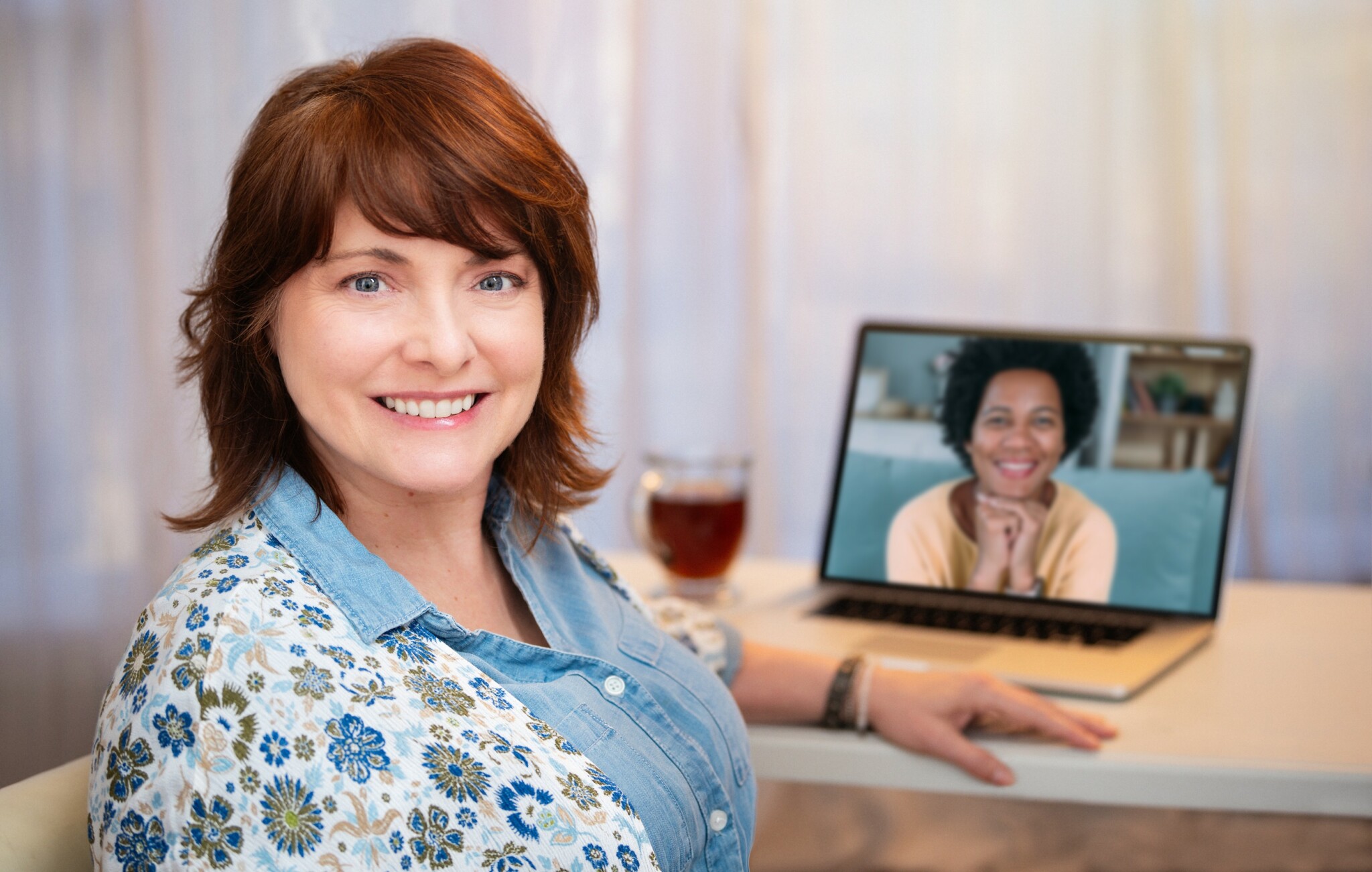
Lesley, before we move on to more of these sorts of questions, can you take some time to bring our readers up to speed on you and what you do?
These days, I work with women who are navigating the challenges of menopause or perimenopause, the hormonal chaos that is often a large chunk of midlife, and that can certainly be a trying experience. There are roughly 140 symptoms associated with menopause, and about 80% of all women will experience these severely enough to wreak havoc on their lives. I am one of those, so I understand so much about what they are experiencing, their confusion, frustration, and longing for hope and direction.
When I hit my mid 40’s I got my first taste of menopause symptoms. I had mood swings that I could not control, severe road rage that I had never experienced before, and my weight shot up 42 pounds in just 2 months. I was still eating clean, exercising daily, meditating, getting outside, and connecting socially with friends. Nothing had changed, and yet everything had changed. I thought I had some terrible disease and rushed to doctors for all kinds of tests…all of which came back as “normal.” This was the beginning of frustration, not only with my physical and mental challenges, but also with the medical professionals I encountered. I cannot count how many people told me everything was fine, that it was all a normal part of getting older. But I knew this was far from normal, and that there had to be both a cause and a cure for my misery.
I felt so invisible in those early years of perimenopause. It seemed like none of the doctors I saw could or would actually hear me, or see the changes I was describing. I felt brushed aside, marginalized, as though I was making this betrayal by my body into a bigger drama than it really was. I got incredibly discouraged, and, at times, it made me wonder if they were right and it was all just in my head. But my body said otherwise. It also made me despondent to think this was just how my life was to be from now on. I meet so many women who feel the same way, and it is essential for them to know they are not alone. There is someone who hears you, sees you, has been there, and can help.
While there isn’t a cure for menopause – it’s a natural part of every woman’s life – there are ways to navigate these changes and regain a sense of self and sanity. This is what I work with my clients on. We tackle the basics of nutrition and physical movement, but we also look at how stress is impacting their mental and physical health, work to build in quality sleep for better resilience, and aim to connect with people and nature regularly.
Some clients prefer the more personalized approach of my one-on-one coaching, while others like a group setting and interacting with others over a six week program. I offer both at Hale and Harmony.
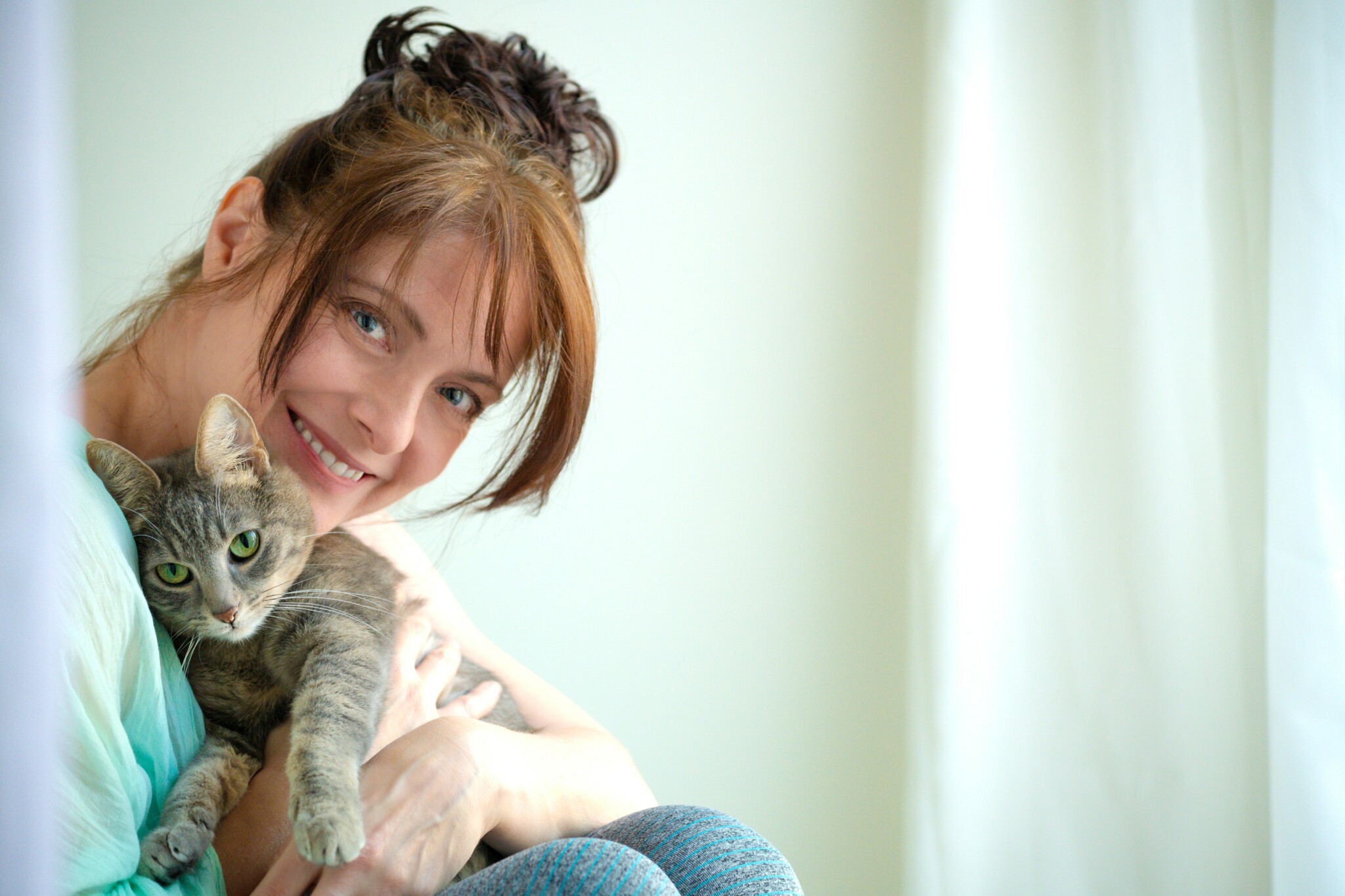
Learning and unlearning are both critical parts of growth – can you share a story of a time when you had to unlearn a lesson?
It’s funny, but I think my thirst for knowledge almost hindered my practice at the start. I have always been a good and enthusiastic student. I love to learn anything new – new cultures, new languages, new science reports about menopause. I became obsessed with all things menopause and the various ways to manage it. Then I got obsessed with coaching techniques, then nutrition, then fitness regimens, and – well, you get the picture. I had all this important knowledge filling my head, and I wanted to share it with my clients.
All of it. At once. In each session.
There’s a phenomenon called information overload, and I was imposing it on my clients. When I undertook the Lifestyle Medicine course at Harvard Medical, I learned the difference between being a coach and being an expert. An expert draws on their education and knowledge, forms a plan, and tells people what to do. A coach listens, asks questions, is genuinely curious about the client and their experience, and simply helps them to uncover their own solutions. An expert is great during times of acute crisis requiring immediate action, but a coach is more productive over the long-haul for sustainable changes, which is what most clients are looking for. A doctor can give them relief in the moment, but I can help them build a lifelong habit of health.
When I first learned this distinction, it felt like coaching in that way was lazy. People needed the information I had, the paths I could craft. They couldn’t already have the answers. They were coming to me for answers, right?
I learned within a few months that what my clients really want is to be heard and seen and supported, and asked if they want more information. When I started to shift to this way of coaching, I got so many messages saying “thank you for not overwhelming me with recipes” or workout plans or handouts on “how to create a perfect sleep routine.” Often, the client already had the basic information, they just needed someone to help them parse it into digestible pieces, and plot a course that fit into their actual life, enabling them to succeed.
I guess the lesson I unlearned was that I wasn’t really the expert in each session, and I didn’t need to be. My client is always the expert on their own experience, goals, and priorities.
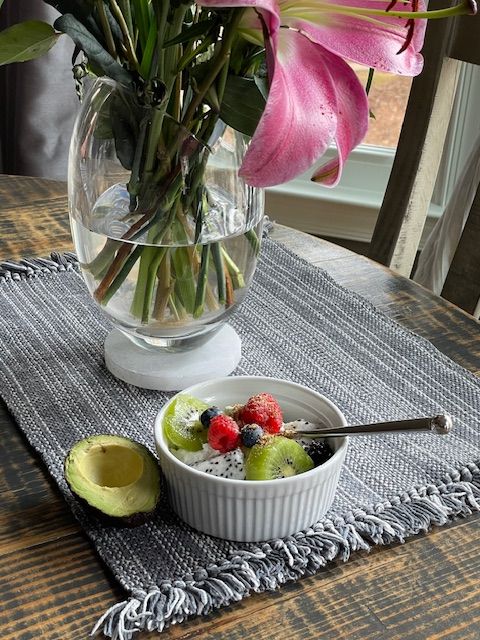
Training and knowledge matter of course, but beyond that what do you think matters most in terms of succeeding in your field?
So much of coaching comes from life experience. Yes, I have trained and studied a great deal, and had some amazing instructors and mentors who have helped me package my coaching into a business. Yes, I continue to learn and take courses because this knowledge base is essential to what I do. But I think the most helpful skill I have acquired along my journey, is simply learning to listen and know when NOT to be the expert. Be the guide, give helpful insights, but let the client discover their own solutions.
We are such intuitive beings, and each person has an innate awareness of what they can do to alter their current state of being. All I have to do is be willing to listen, reflect their ideas back to them, and give them a little structure to make those ideas integrate with their day-to-day. Just like any relationship, coaching is about authentically seeing and connecting with another human being, and holding space for them to discover and share their own inner wisdom.
Contact Info:
- Website: https://www.haleandharmonyhealthcoaching.com
- Instagram: https://www.instagram.com/haleandharmonyhealthcoaching/
- Facebook: https://www.facebook.com/haleandharmonyhealthcoaching/
- Linkedin: https://www.linkedin.com/company/hale-and-harmony-health-coaching
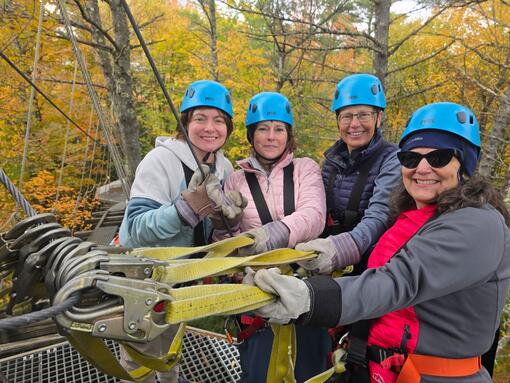
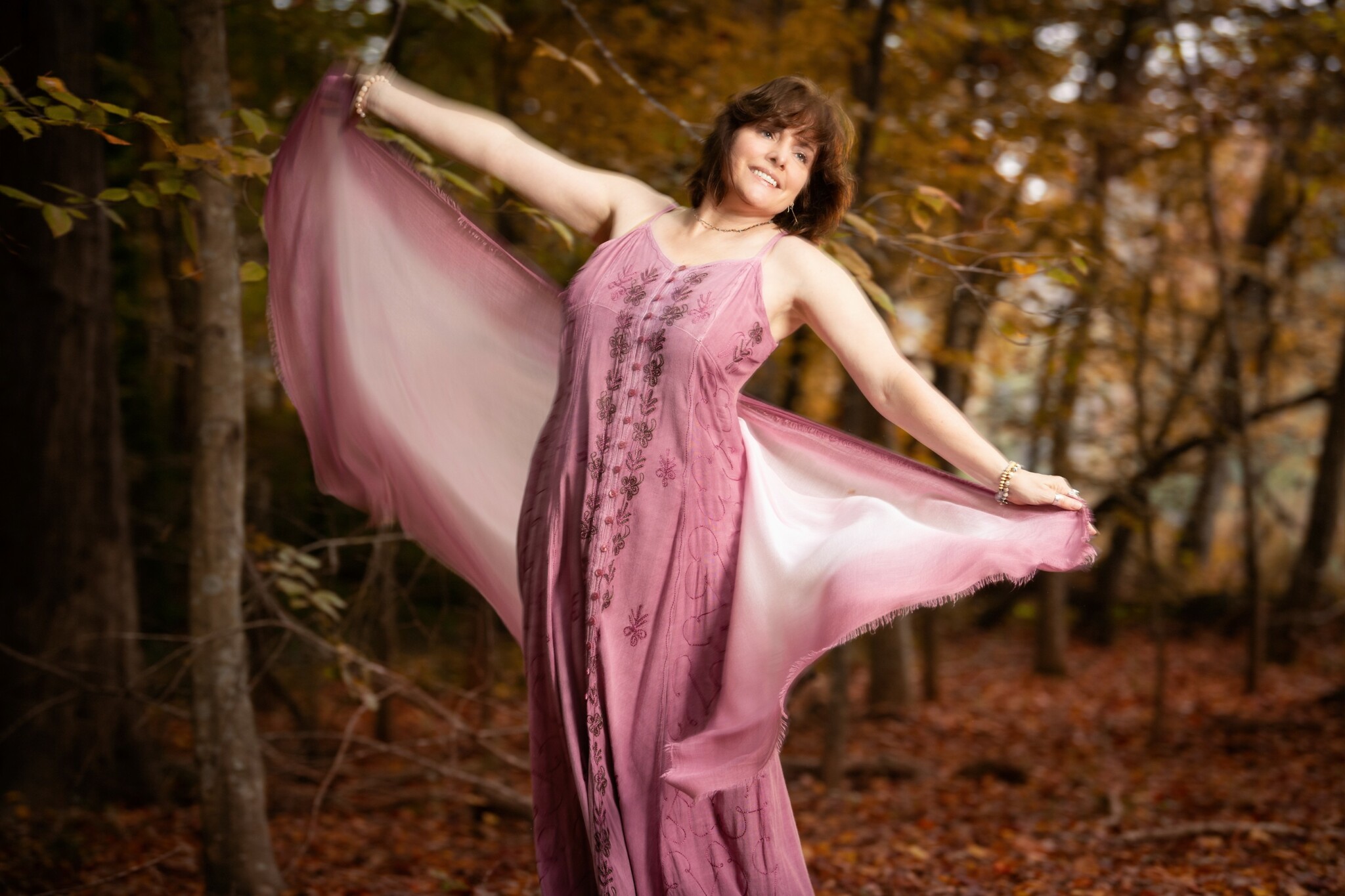
Image Credits
Photos courtesy of Geoffrey Donne Photography


